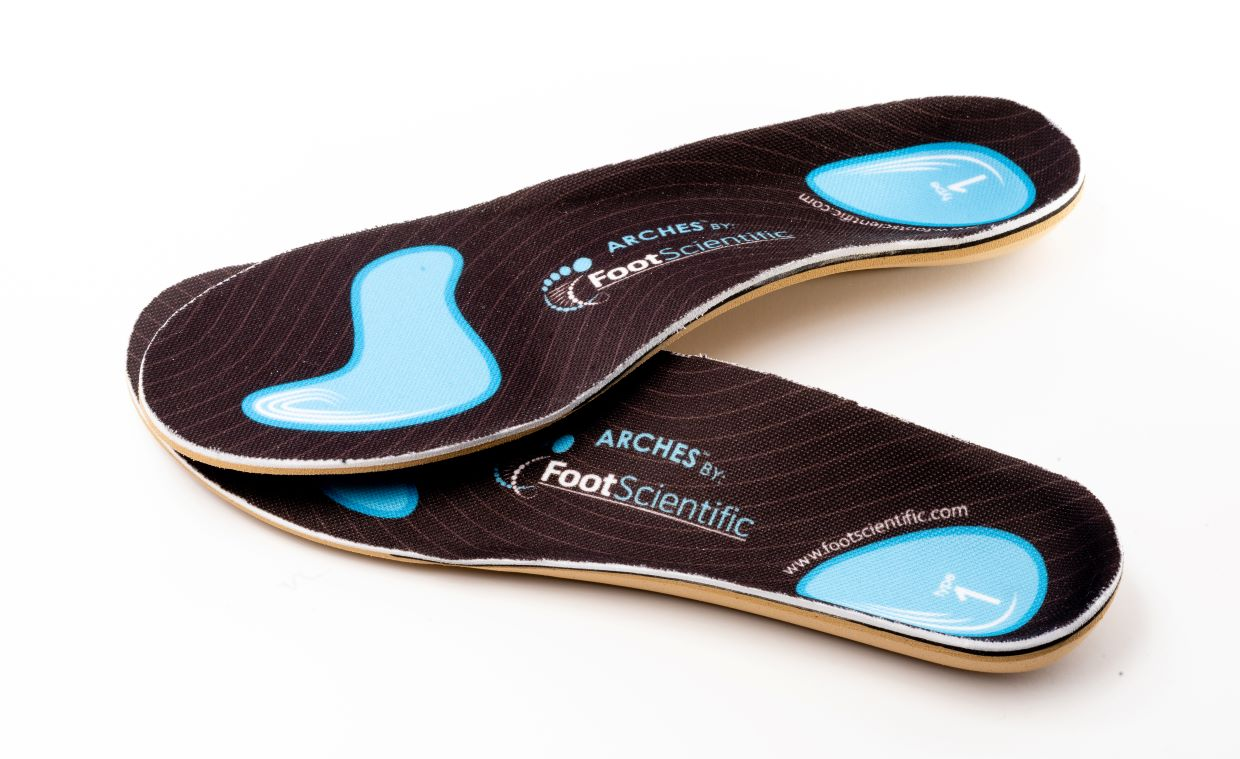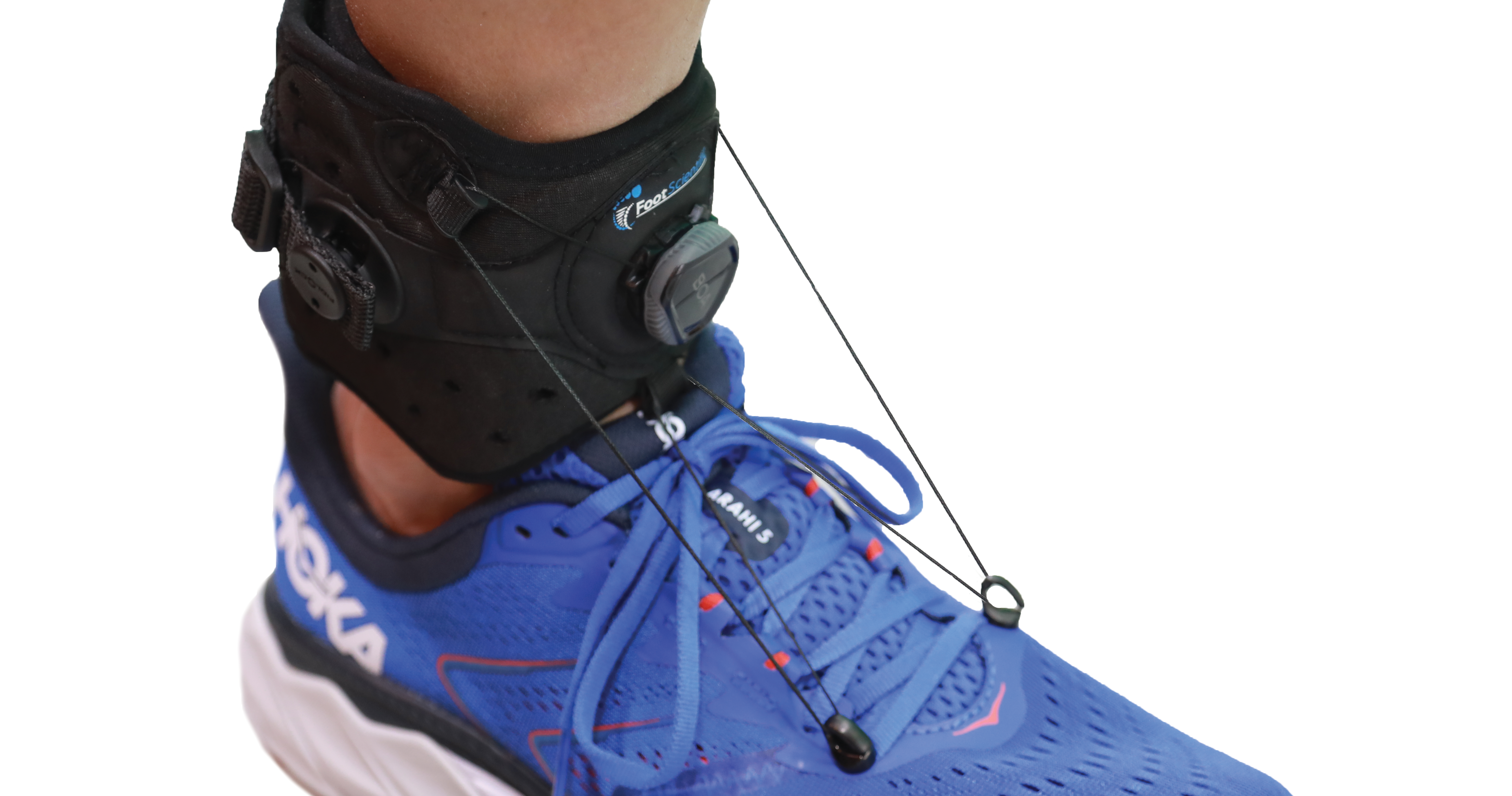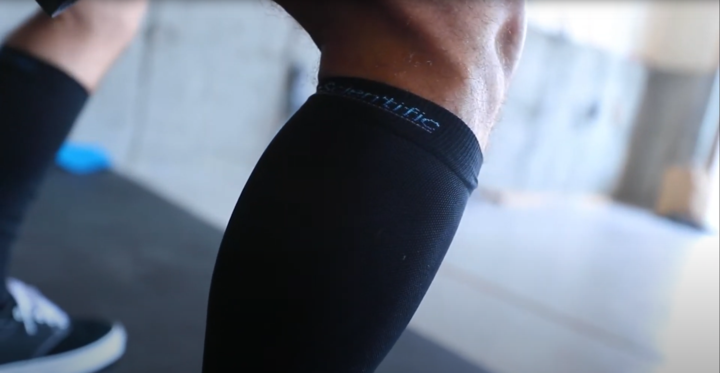FREE SHIPPING on orders over $99
For the best fit, if you’re between sizes, we recommend sizing up.
HSA Eligible - This item is now eligible to accept HSA payment!
The Arches® line of Orthotics by FootScientific provides perfect balance of comfort and performance for both the athlete and the lay user. Materials surpass the comfort of custom footbeds while enhancing proper support. The primary material, a cork amalgam, holds its comfortable shape over time and includes a gel cushion for the heel and ball of the foot for all day comfort.
If you don't have a high arch, or flat foot, choose the Type 2 Neutral Orthotic.
The Arches® Orthotics Type 2:
- Cradles the foot and supports the arch for comfort and stability.
- Distributes weight across the foot.
- Relieves pressure points and enhances comfort, injury prevention, and performance.
What's Your Foot Type?
Physicians Recommend Type 2 For:
Plantar Fasciitis and foot fatigue - both of which can resulting from:
- Too Much Time on the Feet
- Natural or Vascular Sensitivity
- Being large-framed or otherwise heavy
- Thinning connective and cushioning tissues from growing older
- Activities placing excess stress on the heel and attached tissues
- Foot Mechanics and walking patterns
FootScientific’s Type 1 and Type 3 correct foot “deformities” having to do with the pronating and with the supinating foot. For this reason, the value of our Type 2’s - for the “normal” arch - is often overlooked. However, Physicians familiar with all three types emphasize to us that they prescribe/recommend FootScientific’s Type 2 as often as they do the other two types. Here’s why:
There are two primary reasons Type 2 is so popular with health-care professionals
- Too Much Time on the Feet
- Natural or Vascular Sensitivity
- Being large-framed or otherwise heavy
- Thinning connective and cushioning tissues from growing older
- Activities placing excess stress on the heel and attached tissues
- Foot Mechanics and walking patterns
What's Your Foot Type?
Type 1: Pronating, Overpronating, Flat Foot, Fallen Arches
Type 2: Neutral Arch
Type 2 is for additional arch support, weight distribution off pressure points, and foot stabilization for a more responsive and comfortable foot. Wet footprint reveals moderate space where the arch rises. With foot flat on the floor, the tip of your finger will disappear to the first joint.
Type 3: Supination, High Arch, High Rigid Arch, Cavovarus Foot, Inner Knee arthritis
- Superior to Custom Orthotics: Your foot falls comfortably into Arches® patented corrective shapes.
- Keeping it Honest and Simple: Arches® understands that choosing an orthotic based on your foot-type is much more important than choosing an orthotic based on activities engaged.
- Designed for Power: The Arches® corrected foot transfers power to large muscle groups and away from injury and pain-vulnerable small muscles and tendons like the plantar fascia.
- Correction AND comfort: Not a gushy gel that feels good for 30 seconds, neither a rigid corrective base that hurts for 30 months. Our cork amalgam keeps its corrective shape while conforming comfortably and flexibly to your foot.
Before & After
Construction
Each pair of orthotics is designed with 5 layers.
- Shock Absorbing Gel Pads: works for additional shock absorption and comfort
- Form Correcting Molded Cork: allows for shock absorption, maintains the alignment, and maintains the correction of the orthotic
- Heel Stabilizing Padded Foam: stabilizes the heel, providing comfort and support
- Comfort Layer of EVA Foam: allows for persistent shock absorption and comfort of the wearer
- Stay Dry B.K. Mesh: works to control perspiration, odor control, and transitional cushioning
How to install your Arches Orthotics
Expert Insights from Dr. Rob Faux
Board-Certified Orthopedic Surgeon specializing in corrective foot biomechanics
Choosing the wrong orthotic type is like wearing the wrong prescription glasses—at best it won't help, at worst it creates new problems.
Pronation (flat feet), neutral, and supination (high arch) foot types each require specific corrective geometries. Comfort orthotics provide cushioning without structural realignment.
The 60-Second Self-Test:
Don't guess your foot type. Here's how to know for sure:
- Wet your bare foot
- Step on dry concrete or paper
- Look at your footprint
What you see:
- Full footprint without arch gap = Flat feet (Type 1 needed)
- Moderate footprint with visible arch = Neutral feet (Type 2 needed)
- Very narrow middle foot with only heel/ball contact = High arches (Type 3 needed)
Type 1 - Pronation/Flat Feet
Symptoms: Inside ankle pain, arch fatigue, heel pain worse in the morning
What's happening: Excessive valgus tilt—your heel rolls inward too much, collapsing your arch and overstretching structures like your plantar fascia.
Correction needed: 3-5° medial (inside) heel posting to counter excessive valgus tilt.
Indicated for: Symptomatic flat feet, early/middle stage posterior tibialis tendinosis, midfoot arthritis, and plantar fasciitis in individuals with flatfoot deformities.
Type 2 - Neutral (Your Foot Type)
Symptoms: Ball of foot pain (metatarsalgia), general foot fatigue, plantar fasciitis without obvious flat foot, forefoot symptoms, plantar plate injuries
What's happening: Your arch structure is relatively normal, but you need better shock absorption and pressure distribution. You're overloading specific areas (heel, ball of foot) without proper cushioning.
Correction needed: Moderate arch support without aggressive posting. Strategic cushioning at pressure points.
Why Type 2 is ideal: Provides cushioning and shock absorption for relatively neutral foot mechanics. Not everyone needs aggressive correction—sometimes you just need smart support.
Type 3 - Supination/High Arch
Symptoms: Outside ankle pain, recurring ankle sprains, lateral foot pain, Achilles issues
What's happening: Rigid high arch creates concentrated pressure points and makes ankles unstable. Heel tilts outward excessively.
Correction needed: 3° lateral (outside) heel posting with first metatarsal relief.
Indicated for: Cavovarus foot deformity, recurrent ankle sprains, lateral ankle symptoms, peroneal tendon pathology.
Why This Matters:
Same diagnosis (like plantar fasciitis), completely different treatments. A flat-footed person and high-arched person can both have heel pain, but they need opposite corrections.
Research confirms: Studies show matching orthotic type to foot structure significantly improves outcomes. Flat feet with medial posting show 75% reduction in pronation-related injuries. High arches with lateral support show 60% reduction in ankle sprain recurrence.
Why Arches Type 2 for Neutral Feet:
The Arches Type 2 is designed for individuals with neutral or normal arch structure who need supportive cushioning without aggressive correction. It provides moderate arch support and shock absorption, making it ideal for plantar fasciitis in neutral feet, metatarsalgia (ball of foot pain), and general foot fatigue. The cork amalgam base maintains structural support while the gel heel and metatarsal pads provide targeted cushioning.
Still not sure? Beyond the wet test:
- Flat feet: Shoes wear on inside edge
- High arches: Shoes wear on outside edge, frequent ankle sprains
- Neutral: Relatively even shoe wear, no major structural issues
If you've ever wondered why your drugstore insoles "stop working" after a few weeks, the material is the problem.
Cork amalgam provides superior structural support, longer durability, and progressive self-customization compared to EVA foam, making it ideal for corrective orthotics requiring consistent biomechanical control.
The Material Science (In Plain English):
Cork amalgam isn't just cork from wine bottles. It's an engineered composite that combines cork particles with binding resins, creating a semi-rigid material that:
- Holds its shape under your body weight — doesn't compress flat like foam
- Conforms gradually to your foot — minor self-customization over 1-3 weeks
- Lasts significantly longer — 18-24 months vs 6-8 weeks for foam
- Provides actual correction — maintains the wedge angle needed to realign your foot
Why Foam-Only Insoles Fail:
Pure EVA foam (what most drugstore insoles use) feels great initially because it's soft and cushiony. The problem? It compresses with use:
- Week 1-2: Feels amazing, seems to help
- Week 3-4: Starting to feel less supportive
- Week 5-6: Completely flattened, back to square one
You're not imagining it—the foam literally loses 40-60% of its thickness with regular use, especially if you weigh over 150 lbs.
Cork vs EVA: Clinical Differences
Cork amalgam advantages:
- Generally firmer and better for heavier patients (over 200 lbs)
- Provides more supportive control than EVA
- Lasts longer as a material
- Works well for both custom and semi-custom orthotics
- Minor self-customization occurs during wear over time
EVA foam advantages:
- Allows for very rapid customization/accommodation
- Especially helpful for problematic localized foot deformities
- Goal is reducing pressure areas rather than aggressive correction
- Ideal for diabetic and rheumatologic conditions with peripheral neuropathy
The Hybrid Approach (Best of Both Worlds):
Arches orthotics use a cork amalgam base with an EVA comfort top layer:
- Cork base: Maintains the corrective angle long-term
- EVA top: Provides cushioning for comfort, absorbs some initial break-in pressure
This is the same construction method used in custom orthotics that cost $400-600. You get the durability and correction of cork with the comfort of foam.
For Heavier Individuals (200+ lbs):
Cork amalgam is especially critical if you're heavier. EVA foam compresses too quickly under higher loads, losing correction within weeks. Cork maintains its structure, providing consistent support regardless of body weight.
Dr. Faux notes: "For patients over 200 lbs, I almost exclusively recommend cork-based orthotics. Pure foam simply can't maintain corrective properties under that load."
The Break-In Period (Why Cork Feels Firmer Initially):
Cork feels firmer initially because it hasn't conformed to your foot yet. This is normal and actually desirable:
- Days 1-3: May feel firm, use 2-3 hours daily
- Week 1-2: Gradually increase wear time as cork begins conforming
- Week 3+: Full break-in, comfortable all day
This gradual conforming is actually the cork self-customizing to your foot's unique pressure points—it's a feature, not a flaw.
Research Backing:
Clinical studies show cork-based orthotics maintain corrective properties 3-4x longer than foam-only designs, resulting in better long-term outcomes and lower cost-per-wear.
Environmental Bonus:
Cork is renewable (harvested from bark without killing trees) and biodegradable. Synthetic foam orthotics sit in landfills for centuries.
The Arches Type 2 Advantage:
The Arches Type 2 combines a cork amalgam base with strategic EVA cushioning zones and gel heel/metatarsal pads. You get the durability and long-term support of cork with targeted comfort where you need it most.




